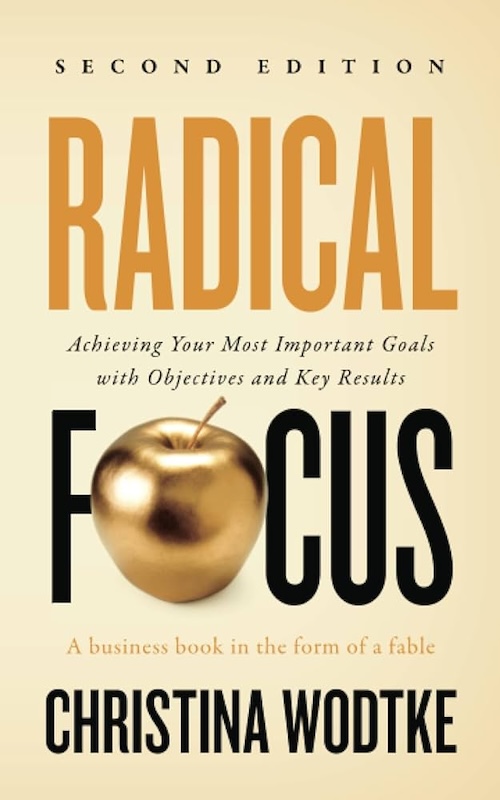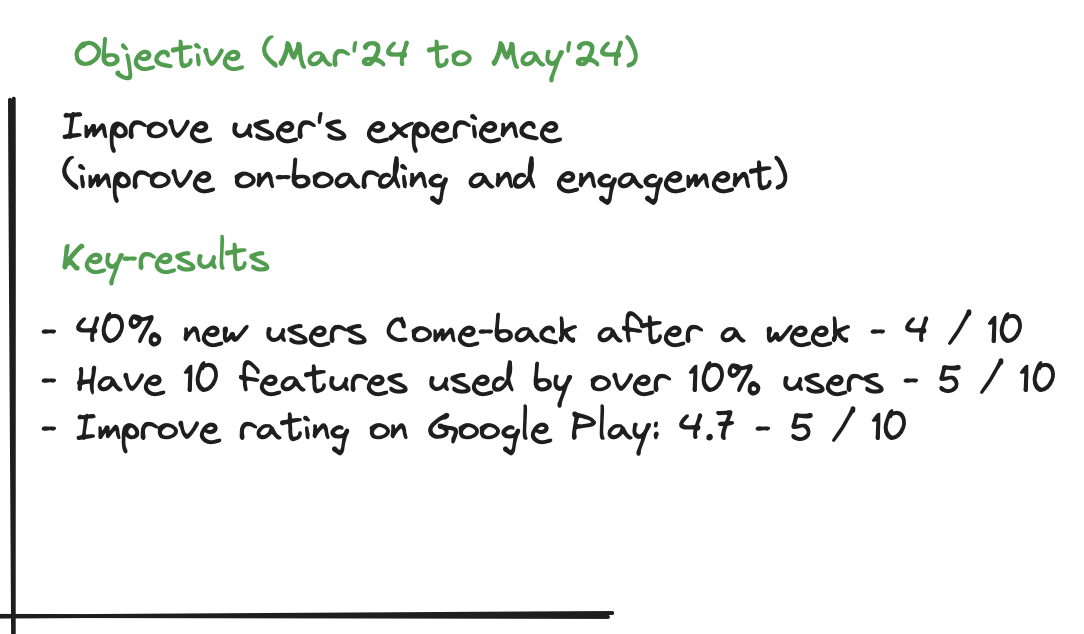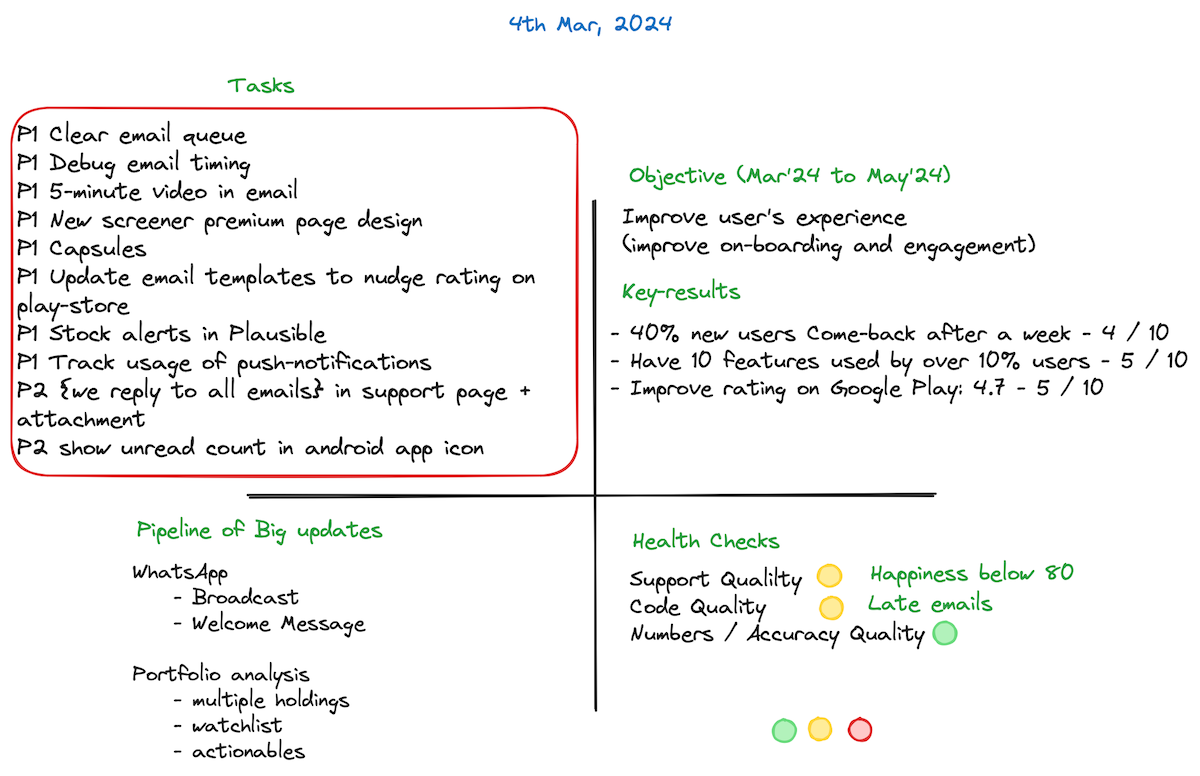Implementing OKRs
We recently started using OKRs for our Screener team.
We are a team of 7.
- 4 Developers: 3 local + 1 remote (part-time)
- 3 Support: 1 local + 2 remote
Four of the team members work remotely.
Most of the tasks are picked, planned and prioritised by me. I find it hard to assign tasks, do continuous follow-ups and provide feedbacks. This is specially hard on our remote team.
This centralised thinking makes it difficult for me to distribute the work. I end up picking most of the tasks. And hence the work that gets done is not always the most important one, but most interesting to me.
I am finding the book Radical Focus helpful in working better as a team.

The book provides a 4 step framework for implementing OKRs.
For the first time, all seven of us connected over a Zoom call. We picked ONE objective for next 3 months: to improve the user's onboarding and engagement.

There are lots of features on Screener. Most people don't know about them. We need to onboard and handhold our users better.
We discussed lots of ideas on how to track whether we are improving or not. Most of these good ideas came from others rather than me. This was very motivating and exciting for me. We finally selected the 3 Key-Results with a 5 / 10 probability of success.
Next we discussed and picked 3 health checks. These are checks to ensure the quality of our regular operations.

Then we prioritised the tasks for the week. Tasks which we believe can impact and move the key results. The things that I had been procrastinating became important.
Lastly, we planned on few larger upcoming ideas.

The book suggests 1 quarterly meeting and two weekly meetings:
- Mondays: We pick new tasks for the week. We also update the progress of key-results.
- Fridays: We share and celebrate the tasks we did during the week.
The Monday meetings take around 60 minutes. The Friday celebrations take 30 minutes. The first quarterly OKR meeting took around 90 minutes.
Let's see how this experiment goes.
